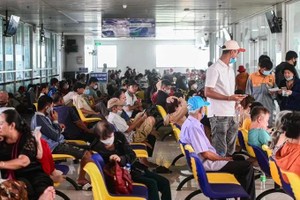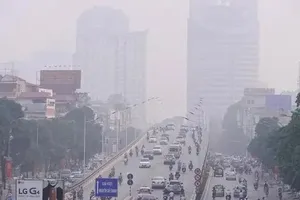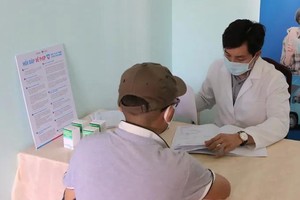Currently, the tobacco taxes in Vietnam make up only 36 percent of the retail price, which are only one-third of the world's average compared to the global average of 62 percent and WHO's recommendation of at least 70 percent of the retail price.
In Southeastern Asia, tobacco taxes in Vietnam are only half of the retail price compared to many ASEAN countries such as Thailand and Singapore.
Despite of achieving many positive results in the fight against the harmful effects of tobacco, Vietnam remains a country with a very high number of smokers in the world, with about 15 million people.

As reported by the General Statistics Office, the total tobacco production volume increased by more than 17 percent from 2021 to 2023, showing that the number of smokers in the country is increasing again.
The latest study for global burden of diseases shows that each year, Vietnam has more than 100,000 deaths related to tobacco, of which 84,500 cases are smokers and 18,800 cases are passive smokers.
The economic damage from tobacco is VND108 trillion (US$4.3 billion) per year, equivalent to 1.14 percent of gross domestic product (GDP).
This is due to Vietnam's very low tobacco taxes, increasing the burden of disease and causing a disproportionate impact on health and economic damage, thereby leading to more tobacco users, including the poor.
Such a tax rate has negatively affected the goals of the National Strategy on Tobacco Harm Prevention and Control until 2030.
The World Health Organization (WHO) reported that Vietnam is among the 15 countries with the lowest tobacco prices in the world.
If the current special consumption tax rate is maintained, Vietnam is difficult in achieving the above national goal.
To achieve the tobacco tax rate as recommended by WHO, the Ministry of Health proposed an absolute tax rate of VND15,000 (US$6) for a pack of 20 cigarettes, equivalent to 65 percent of the retail price.
If this proposal is approved, it is likely to reduce the smoking rate among men in the country to 35.8 percent by 2030.
























